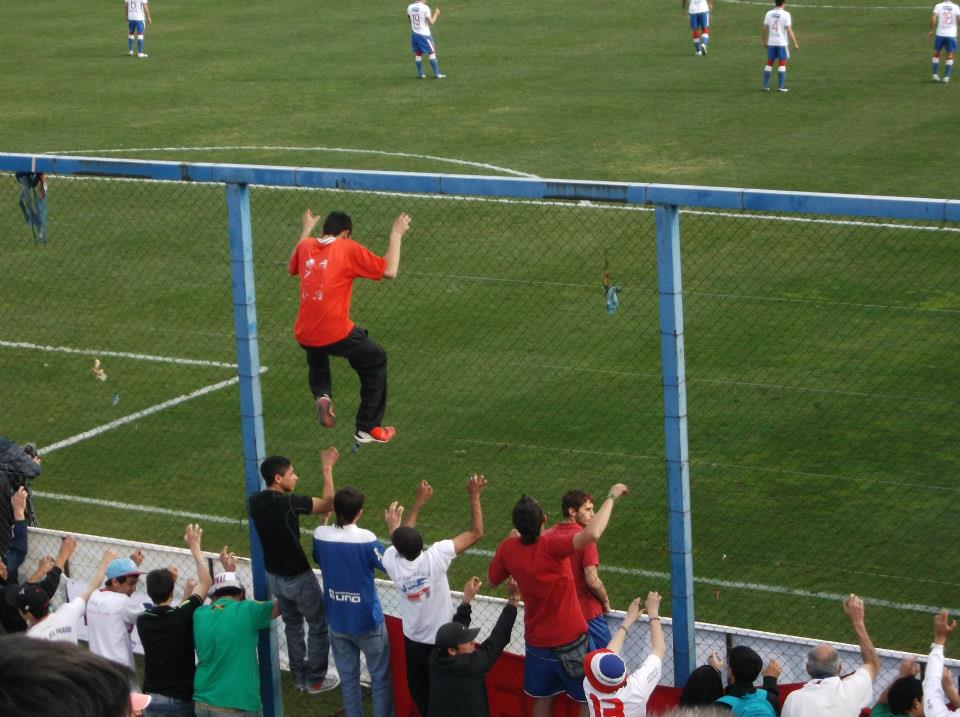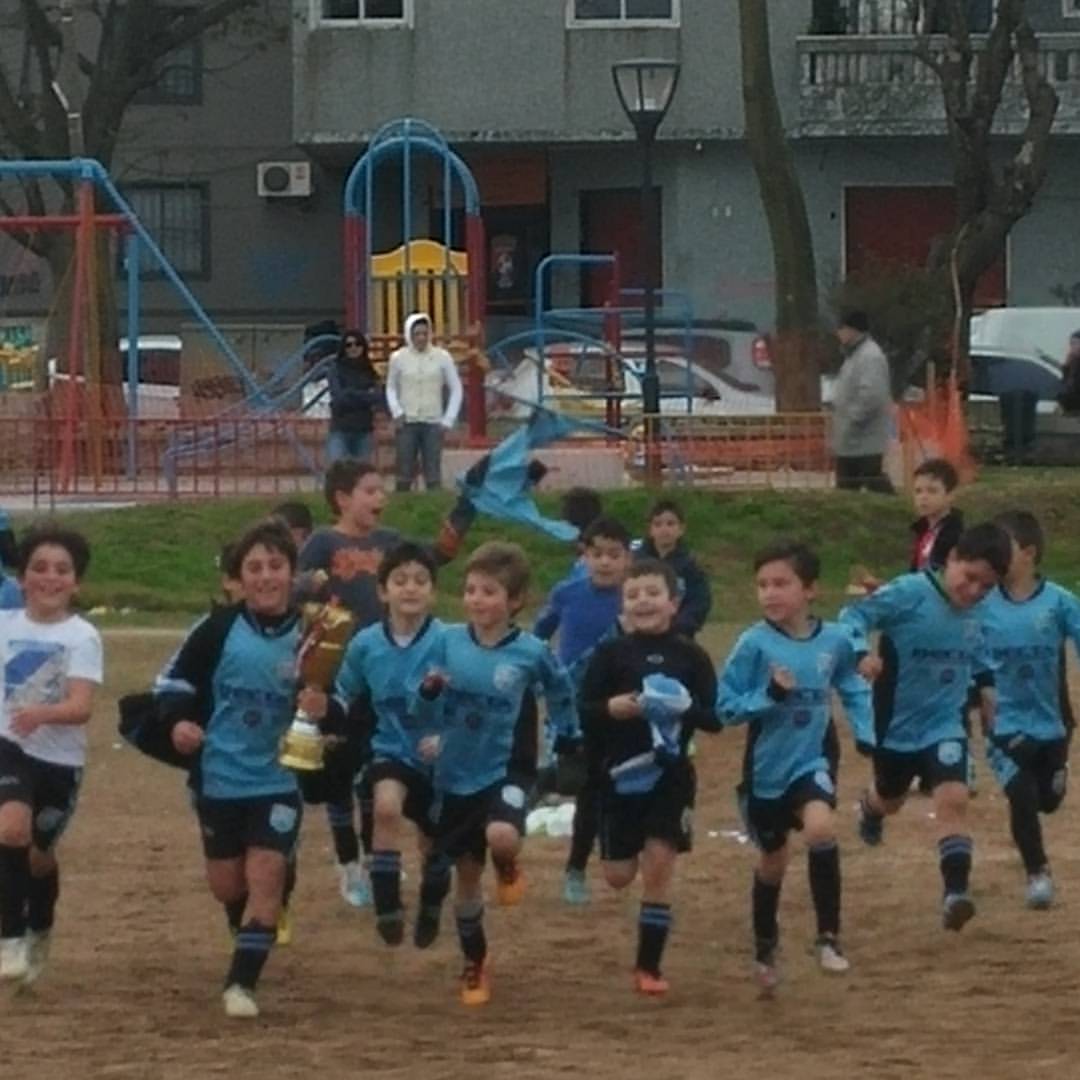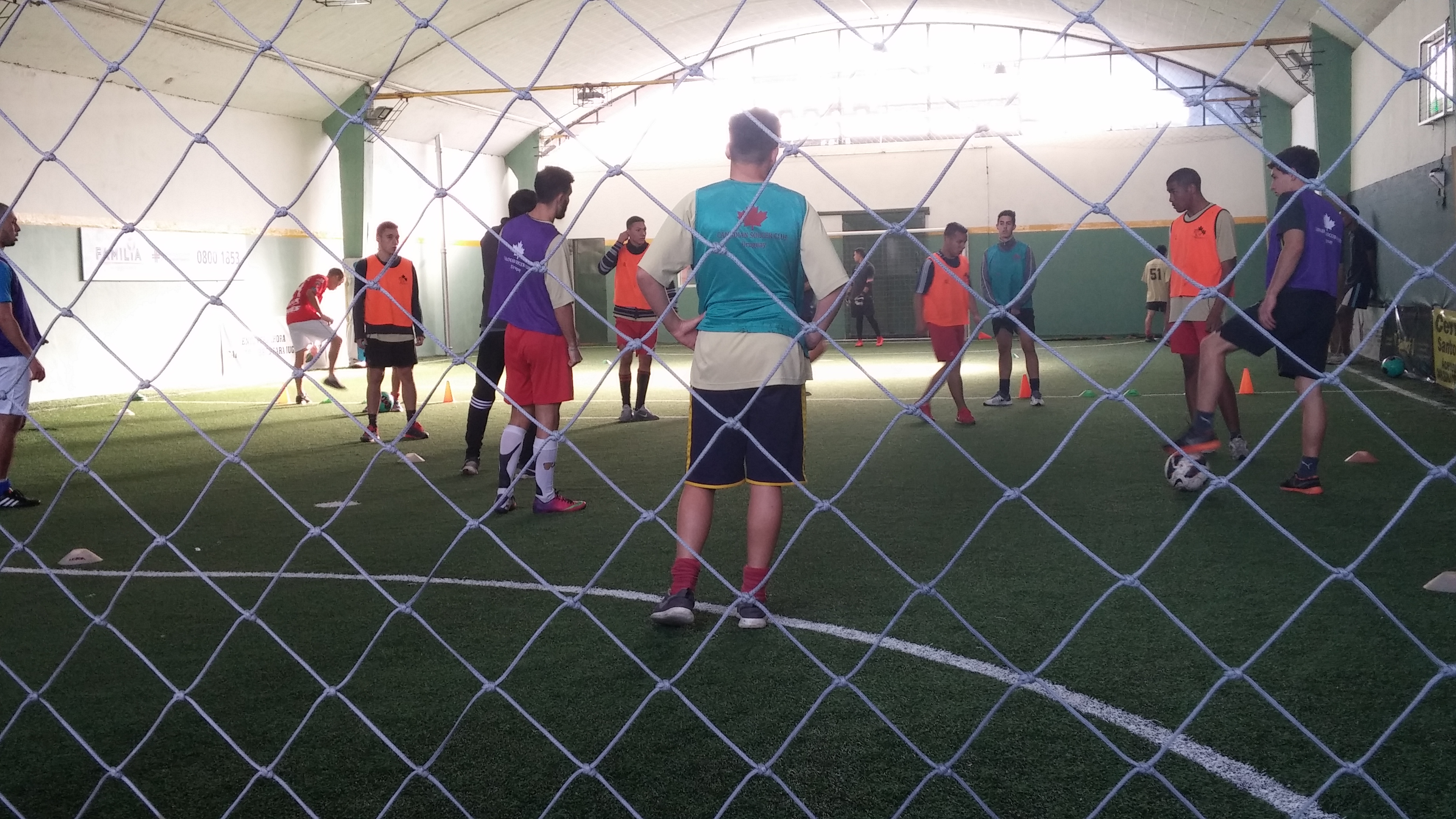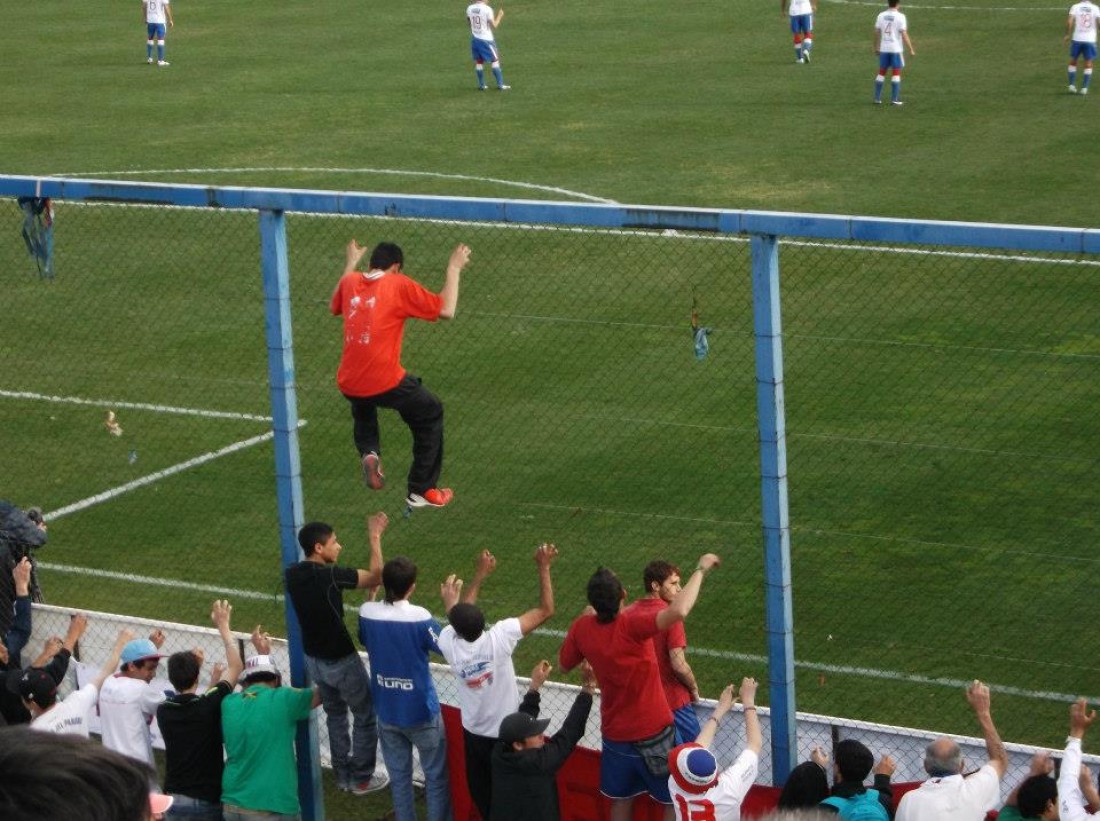I enjoyed my first opportunity to work in professional soccer this year, when I was hired as Fitness Coach for Canadian SC Uruguay, a professional soccer club in the Uruguayan Segunda (2nd Division). I was fortunate to have been given this opportunity by Canadians SC’s head coach, Rafael Carbajal, an Uruguayan Canadian who had previously been working with the Canadian Men’s National Team.
Canadian SC is just one of over 30 professional soccer clubs from Montevideo, Uruguay’s capital city and a hotbed for talent development in the country. As a matter of fact, the nation of Uruguay as a whole, with a population of just over 3 million people, has been excelling at player development for over 100 years, and can perhaps be considered the most successful soccer nation in the world, per-capita.
Ask any Uruguayan to back up this claim, and they will be happy to oblige. They might start by pointing out that their nation has won 4 – not 2, but 4 World Championships – the first two being the 1924 and 1928 Olympic titles which are generally regarded to have been the top soccer competition in the world prior to the first-ever FIFA World Cup in 1930 (which they also hosted and won), as well as the 1950 FIFA World Cup in Brazil, where they upset the hosts in the final in Rio De Janeiro in one of the most famous soccer matches ever to be played.
Uruguay also has the distinction of being the most successful nation ever in the Copa America, the South American Championship tournament held every four years. With 15 Copa America titles – the most recent of which came in 2011 – Uruguay has eclipsed even the continent’s giants Argentina (14 titles) and Brazil (8 titles).
All of this success has been achieved despite a tiny population and relatively small domestic professional league. In fact, there is no other country in the world, per capita, that has come even close to achieving the international success that Uruguay has, and the Uruguayans seem to relish their role as soccer “underdogs”, a topic which I have written about in my blog before:
https://soccerfitnessgols.com/2016/07/08/soccer-in-uruguay-day-7-underdogs/
As a Canadian fitness coach, the experience of working in top level soccer in a country like Uruguay was invaluable for me. During my time there, I couldn’t help but think about the stark contrasts that exist between Uruguayan and Canadian soccer. Although I worked exclusively with the first team (adults) at Canadian SC, I also got to spend a lot of time working with and learning from the club’s youth academy coaches and fitness coaches – who work with teams from the U14-U19 age groups – and it is in these age groups where the main differences between Uruguayan and Canadian soccer are most prominent.
While there have been improvements in the Canadian youth soccer system over the past 15-20 years, we have not been able to keep pace with other nations – not just the more successful European and South American nations but even those in our own CONCACAF region – and as a result, we have not been successful in developing top class adult players to feed our national teams.
Three main aspects of Uruguayan youth soccer in particular stuck out the most as being very different from what we presently have in Canada, and they are a big reason why this was such a great learning experience for me. Below is a summary of the three things Canadians can learn from Uruguayan youth soccer.
- We need to develop a soccer culture where babies, toddlers and young children are better exposed to the game.

In Uruguay, as in almost any other country in the world, all the little kids want to be professional soccer players when they grow up.
Why do they want this? Because from the moment they are able to see, they see soccer. From the moment they are able to hear, they hear soccer. From the moment they can walk – and many times much earlier than that – someone has put a ball in front of them for them to play with. You get the idea.
The underlying reason for Uruguay’s obsession with soccer is that all of the most famous and successful Uruguayan professional and National Team players grow up plying their trade close to the homes – sometimes even literally in the backyards – of the young players aspiring to take their place in the future. Young aspiring soccer players in Uruguay can watch games on TV, on the internet, or attend live matches close to home at a very low price, and see their heroes up close and personal, on a weekly and sometimes even daily basis.
The small geographical landmass of Uruguay combined with the centralisation of most of the soccer talent in Montevideo, means that there is great proximity between youth players and professional players. Youth players have a very clear idea of what is required to become a professional player because they live and train very close to professional players.
All of this results in a “culture of soccer” in Uruguay, which ensures that when these youth players reach their formative years, their technical development and tactical knowledge of the game will be at the highest level possible, because they will have seen and been able to emulate the top players in the country far more often than their Canadian peers.
It is possible that, through better development and promotion of our own, Canadian domestic professional leagues (like Ontario’s League One) we may be able to develop a similar “culture of soccer” in Canada, which could then help to encourage and advance the development of young Canadian talented soccer players.
- We need to make our youth soccer programs, specifically from the ages of 7-13, accessible to everyone.

Believe it or not, there is a Uruguayan version of “house league” soccer. It’s called “Baby Futbol”, and it comes complete with all of the things you might expect to see in an amateur recreational youth soccer league.
Teams play 11v11, on a field not much smaller than a full size adult pitch, with goals of equal proportions. There are young and relatively inexperienced coaches, and the parents on the sidelines can be heard screaming encouragement – and sometimes instructions – from miles away.
Baby Futbol is the only youth soccer program available to Uruguayan children between the ages of 7 and 13, and it is free.
That’s right – it costs parents nothing to have their children participate in Baby Futbol.
From this large pool of youth soccer players, academy coaches and scouts from all of the professional clubs in Uruguay will select the best and most talented players to participate in their academy teams programs, starting in the U14 age category.
This means that one, centralised, free youth soccer system houses all of the potential future professional players in Uruguay. No young Uruguayan soccer player, regardless of his family’s financial resources, is denied the opportunity to play in Baby Futbol, and thus the opportunity to be identified as a potential professional soccer player is accessible to all Uruguayans.
Furthermore, identification and selection of talented players from Baby Futbol (“recreational soccer”) to professional academy teams (“competitive soccer”) in Uruguay occurs at U13, as opposed to at U8 in Canada. Thus, talented Uruguayan players are not excluded from competitive soccer or the pathway into professional soccer at a young age.
Accessibility of all young soccer players to the professional soccer system, by way of Baby Futbol, is a key contributor to the overall success of Uruguayan soccer, because it means that there are literally no potential professional and/or National Team players who are excluded from the system.
There is potential that in Canada, better accessibility to competitive or “rep” soccer at the youth levels (ages 7-13) could lead to less exclusion of potentially talented players, and in turn strengthen our own professional and National Teams programs.
- We need to ensure that beyond the age of 13, coaches who work with talented young soccer players have a high standard of coach education.

As mentioned previously, the best and most talented Uruguayan Baby Futbol players are identified by professional coaches and scouts, and placed into professional academy teams, beginning in the U14 age category. From there, most professional clubs will have academy teams who compete in U14, U15, U16, U17 and U19 leagues, with the best U17 and U19 players eventually being called up to the clubs’ senior “First Teams.”
Coaches working in professional clubs’ academy teams are required, through the Asssociacion Uruguaya de Futbol (the Uruguayan Football Association – “AUF” for short) to obtain a Uruguayan youth coaching license, which is a 2-year diploma course comprising over 1400 hours of technical instruction, including both written and practical exams.
The content of the course has been developed by local and foreign coaches, as well as sports scientists and teachers, with background and experience at the highest levels of professional and international soccer. Included in the curriculum are modules covering physiology, biomechanics, sport psychology, and periodization of training – and all the coaches working in professional academies in Uruguay must complete these modules and prove their knowledge and competence in these areas.
Once they reach the professional academy level – a level at which a high standard of coaching is required – talented young Uruguayan soccer players are placed in programs where they receive this high standard of coaching.
The comparative standard of coach education for coaches of competitive soccer players in Canada would be the Ontario Provincial and Canadian National “B” Licenses, each of which comprise 1 week of instruction and testing. In Uruguay, coaches at the same relative level of competition must take a 2-year licensing course, with multiple written and practical examinations.
Perhaps, if we want to improve our ability to coach and develop our talented young soccer players beyond the age of 13 in Canada, we may need to raise the standard of our Canadian coach education programs for coaches working in these age groups.
I’d love to hear your comments and feedback about this topic. Drop me a line here to get the conversation started.


Your correct that coach education needs to improve the licence at the equivalent B level needs to have various “courses” with academic standard and credit towards a diploma or bachelors degree confired by a new private university established by CSA.
U8 to U13 soccer should all be house league with regional associations ensuring even smallest town/club has a league to play in with no league entry fee except to pay referees.
At U13 U15 and 17 house league (recreational ) leagues should continue again with smallest town/club ensured of a league to play in.
Players identified by pro cubs or for profit Academy business’s should not have to pay to participate, the cubs/Academy’s funded by solidarity payments and sponsorship/ gate receipts. Teams formed would play in league play at U14,U16,and U18 against other academys and pro clubs.
Community competitive clubs could charge in a pay to play system, but such clubs could not operate any recreational teams and programs,leagues they play in would be operated by the provincial associations in standards based leagues. They would run U14,U15 and U18 programs as well as Senior soccer.